每日观察:关注Playdom关闭两个社交游戏项目(11.23)
1)eMarketer最新报告引用Information Solutions Group今年9月的数据指出,年龄介于18至29岁的美国社交游戏用户比例达30%,而去年的这一比例则是15%。
社交游戏玩家的平均年龄也已从45岁下降至41岁,观察者认为社交游戏玩家“年轻化”的现象与Facebook平台出现大量的硬核游戏有关。
2)据Houston Examiner报道,美国社交游戏开发商Night Owl Games在与Zynga进行数月交涉之后,日前向休斯顿联邦法院提出诉讼,抗议后者要求其停用“Dungeonville”这个名称的主张(游戏邦注:该名称出现于Night Owl Games开发的游戏《Dungeeon Overlord》中的一个新关卡或玩法模式)。
Night Owl Games已从索尼电脑娱乐公司获得《Dungeon Overlord》所有权,并于今年2月10日申请注册“Dungeonville”商标。而Zynga则在7月份提交申请,要求美国商标局推迟该商标的审批流程,该公司律师甚至向Night Owl Games发送邮件,要求后者放弃“Dungeonville”商标。
Night Owl Games在诉讼文件中宣称,只有Zynga一方也采取同样措施,他们才会同意推迟注册该商标。但Zynga拒绝了这项主张,从其邮件内容来看,Zynga似乎认为只有它自己才拥有“Ville”这个后缀的所有权。
因此Night Owl Games请求休斯顿联邦法院裁定“Dungeonville”并不属于商标侵权行为,报道称本案审讯将在30天内开庭。
观察者称这并非Zynga首次试图控制“Ville”在电子游戏领域的商标权,也不是该公司初次反对其他竞争者使用这个后缀,但结果究竟如果要看Zynga最终能否胜诉。
3)据games.com报道,Playdom于2010年春季发布的城建社交游戏《Social City》曾一度因极旺的人气晋升至Facebook热门游戏榜首,但随后用户数量急剧下滑。据AppData数据显示,该游戏目前MAU仅27万,DAU为2万。
有人认为尽管Playdom经常为该游戏推出新内容,但Zynga去年发布的《CityVille》打破了《Social City》复活的最后一线希望。Playdom最近通过邮件通知玩家,这款游戏将于今年12月20日停止运营,并推荐玩家体验《Gardens of Time》和《Gnome Town》等其他Playdom游戏,但却并没有说明公司将如何处置玩家手中剩余的City Bucks,目前只知道该游戏已移除了购买City Bucks的设置。
观察者认为流失大量用户,以及缺乏盈利性是Playdom关闭该游戏的主要原因。
除了《Social City》,Playdom还宣布另一款游戏《ESPNU College Town》也将面临同样命运,但其未推出玩家虚拟货币去向的解决方案确实惹恼了一些用户,有玩家抱怨称自己不该在游戏中花钱,Playdom这种做法浪费了玩家在游戏中的投入。
《ESPNU College Town》是首批尝试植入品牌内容的Facebook游戏之一,曾在2010年获得较大影响力,可能也是首款接受电视广告的社交游戏。据AppData数据显示,该游戏目前MAU为15万,DAU仅为2万。
4)Rocket Ninja公司日前通过欧洲投资者Marcel Boekhoorn在第二轮融资中筹得750万美元,至今总共融资1100万美元。
该公司曾向Facebook推出的3D游戏《Wrestler:Unstoppable》(游戏邦注:该游戏原先是由SteamStreet开发的一款复杂的2D格斗游戏,Rocket Ninja于去年买下这款游戏所有权,并于2011年使用其Shr3d游戏引擎进行改良,使《Wrestler:Unstoppable》变身为3D格斗游戏),并表示这款游戏呈现了较高的用户留存率。但据AppData数据显示,该游戏在9月份时已开始失势,目前仅有8万MAU和1万DAU。
5)DeNA日前宣布与越南最大的网络公司VNG形成战略合作伙伴关系,后者将向Mobage平台独家发布社交游戏。
VNG计划“在2012年至少向Mobage智能手机平台发布3款社交游戏”,该公司之前已向DeNA与雅虎合作的PC端社交游戏平台Yahoo Mobage投入农场模拟游戏《Pig Farm》。
VNG成立于2004年,在胡志明市和河内设有工作室,预计今年收益将达9000万美元,目前已有1500名员工(数量超过DeNA),其中游戏开发团队成员达250人(游戏邦注:VNG这家发行商掌握了越南60%的游戏市场份额)。
DeNA在今年9月收购了河内游戏工作室Punch Entertainment,他们表示将通过旗下的新加坡子公司DeNA Asia加强与东南亚游戏开发商合作。
6)社交调研公司SuperData最近预测,今年巴西社交游戏市场规模将达1.36亿美元,2014年将增长至2.38亿美元。
该报告调查了巴西2414名用户的游戏习惯,并预测2014年巴西社交游戏用户将达5230万。据另一家调研公司Newzoo数据显示,巴西目前占据35%的拉美社交游戏市场份额,在全球市场中占比5%。
巴西每名付费用户平均收益为1.87美元,比北美用户少0.5美元。该地区最大的社交网络是Orkut,当地用户最普遍的支付方式是电子钱包。
Orkut目前活跃用户达6600万,几乎覆盖60%的巴西人口。SuperData报告称2014年非Facebook社交游戏营收将达56亿美元。
7)Playfish总经理John Earner在最近的媒体采访中表示,Facebook游戏竞争日益激烈,他认为在这个领域中只有那些已掌握大量用户(如Zynga、Playfish和Wooga等公司)的开发商,或者拥有品牌知名度的公司才有可能获得成功。
他称品牌对现在这个领域来说极为重要,Facebook游戏市场的门槛已经抬高,普通开发商已经很难从底层向高处攀升,虽然品牌并不能替代好游戏,但如果一个好产品拥有强大的品牌支持,定会更有胜算。
有人认为,Facebook平台的独立游戏开发者时代已经结束,如果从《Weeds Social Club》和《Dexter Slice of Life》等游戏运营表现不济的情况来看,Earner的观点似乎正反映了事实情况。(本文为游戏邦/gamerboom.com编译,拒绝任何不保留版权的转载,如需转载请联系:游戏邦)
1)Are social games cool now? Gen Y is 30 percent of US social gamers
by Joe Osborne
Social games aren’t just going “hardcore”, but it seems they’re no longer just for old middle-aged folk. According to an eMarketer report citing data from Information Solutions Group (ISG), 30 percent of US social gamers are between 18 and 29 years old. That figure is as of September of this year, and in January 2010, Generation Y made up for just 15 percent.
With that change, the average age of the social gamer has dropped from 45 to just above 41 years old. So, social gamers are getting younger–how did this happen? Well, “hardcore” games are generally for younger audiences, so perhaps the recent boom in strategy games on Facebook accounts for at least some of this shift. Generally speaking, social games are slowly becoming more visually attractive and action-packed. Take The Sims Social, CastleVille and Mafia Wars 2, for instance.
As for what this could mean, social game makers are likely going to create games that are more appealing to this younger crowd. That’s especially considering the data from ISG finds that younger social gamers are more likely to pay up for virtual items. Will 2012 be the year of the Facebook shooter? Probably not, but you can probably expect more games like this.(source:games)
2)Zynga owns the ‘Ville’ suffix, apparently, Night Owl Games fights it
by Joe Osborne
Oh, yeah? Well, then we’re trademarking “‘Town”–ha! Houston, Tex.-based social game maker Night Owl Games has filed suit against Zynga over the fair use of the title “Dungeonville” in a new level or gameplay mode in its Dungeon Overlord. Night Owl Games took the case to federal court on Nov. 18 after months of dispute with the gaming giant.
Night Owl Games, which received full rights to Dungeon Overlord (which it developed) from SOE recently, filed for the “Dungeonville” trademark in Feb. 10, 2011. In July–just as Zynga filed with the U.S. Trademark office to delay the approval process of “Dungeonville”–the company’s lawyer started an email exchange with Night Owl Games. The emails, featured as evidence in Night Owl’s lawsuit, ask the company to abandon the trademark.
According to the lawsuit, Night Owl Games offered to hold off on “Dungeonville”, but only if Zynga agreed to do the same. Of course, Zynga refused. Based on this email exchange, Zynga seems to believe that it has rights over any use of the suffix “‘Ville”. Well, at least as it pertains to video games. Basically, Night Owl is asking a Houston federal court judge to rule that “Dungeonville” is not a trademark infringement. Houston Examiner reports that a hearing should be scheduled within 30 days.
This is far from the first time Zynga has attempted to trademark “‘Ville” at the butt of a video game title, nor is this a first for the company to oppose potential competitors using the suffix. What might be a first, however, is if Zynga wins.(source:games)
3)Playdom will pull the plug on Social City next month
by Brandy Shaul
I hate to say it gamers, but it was only a matter of time. After launching Social City on Facebook back in the Spring of 2010, Playdom’s city-building game skyrocketed in popularity and for a time sat on the top charts for most popular Facebook games. That popularity declined quickly however, and the game has continued to hemorrhage users up until now, with the game currently resting at just 270,000 monthly active players (20,000 daily active players, according to AppData).
While new content is still regularly pushed out for the game, one could argue that CityVille’s release last year was the final straw for what would break its chance of a revival. It may have put up a hard fight, but Playdom is finally saying goodbye to its city-builder. Via emails that have now started circulating to players, we see that the game will officially close on December 20, 2011. There’s no mention as to what will happen to any remaining City Bucks, the game’s premium currency, but the ability to purchase more has seemingly been removed from the game (you’ll receive an error message when attempting to go to the “Get City Bucks” page).
We can only assume that the reasoning behind the closure has been the mass exodus of players, along with any revenue they might have been providing, but Playdom is attempting to save existing players by advertising Gardens of Time and Gnome Town in the same breath as this closing announcement. “Unfortunately we feel the game has run its course,” the email reads. “As we release new games, we hope to have your continued support and patronage!”(source:games)
Did you get the email too? Social City–um, never mind–Gardens of Time maker Playdom has announced in a mass email sent to players that ESPNU College Town will be closed for good this Dec. 20. According to the message (the game features a truncated version), Playdom feels that the game has run its course.” And players already appear quite upset in the forums.
No information has been given on whether players will be able to transfer their existing premium in-game currency to another Playdom game nor whether players will be reimbursed for their money spent. And that fact seems to have players more upset than anything.
“What a waste for everyone who ever did anything with this game,” player Dean, Johnstown State writes. “I’m ashamed I ever signed up. Get an email saying I was one of the game’s best, well, I hate myself for the money I spent playing this POS game and what it became and, now, how it’s going out.”
ESPNU College Town was one of the first major branding attempts in Facebook games, which enjoyed considerable success in 2010. And, at least as far as we know, ESPNU was the first social game to receive TV advertisement. As of this writing, the game welcomes just 150,000 monthly players and 20,000 daily players, according to AppData. (source:games)
4)Rocket Ninja Closes $7.5M Second Round for New Hires
AJ Glasser
Rocket Ninja, current developer of Facebook game Wrestler: Unstoppable, has secured a $7.5 million second round of funding from European private investor Marcel Boekhoorn. This brings the developer’s total funding to $11 million.
Wrestler: Unstoppable started as a complex 2D fighting game for Facebook developed by SteamStreet. Rocket Ninja purchased the game last year and essentially relaunched it earlier in 2011 as a 3D fighting game that runs on its proprietary Shr3d game engine. The developer claimed it saw stronger retention with the dramatic change. Data collected from our AppData traffic tracking service shows that Wrestler: Unstoppable lost growth momentum in September, however, with 80,000 monthly active users and 10,000 daily active users as of today.(source:insidesocialgames)
5)Vietnam’s Biggest Web Company VNG To Provide Games Exclusively To Mobage [Social Games]
by Dr. Serkan Toto
DeNA today announced it entered a strategic partnership with Vietnam’s biggest web company VNG. Under the deal, DeNA will support its new partner in bringing social games exclusively to Mobage in the future.
The plan is to release “at least three social games for smartphones on Mobage in 2012″, which, given that VNG boasts 1,500 employees (more than DeNA), doesn’t sound like a high number.
With the help of DeNA, VNG already released a farming simulation called Pig Farm on Yahoo Mobage, Yahoo Japan’s and DeNA’s PC-based social gaming platform (another title is soon to follow).
DeNA says that it will use its Singapore-based subsidiary DeNA Asia Pacific Holdings Pte. Ltd. (DeNA Asia) to continue to connect with social game developers in South East Asia.
VNG was founded in 2004, has offices in Ho Chi Minh City and Hanoi, and expects revenue to hit US$90 million this year. 250 of the 1,500 employees are working in game development (as a publisher, VNG commands 60% market share in Vietnam’s gaming market).
DeNA acquired Hanoi-based game studio Punch Entertainment in September this year.(source:serkantoto)
6)Brazil’s Social Gaming Market Projected to Reach $238M by 2014
By Kenna McHugh
The social gaming market in Brazil is predicted to grow as large as $238 million by 2014, according to a study by social research firm SuperData. That is a momentous increase from the $136 million the market is predicted to be worth at the end of the year.
The social games market study is based on the behavior of 2,414 users in the region, predicting the user base will also reach 52.3 million by 2014. Right now, Brazil makes up 35 percent of the Latin American social gaming market and five percent of the global market, according to another study released last month by research firm Newzoo.
In Brazil, the average gain per paying user is $1.87, practically $.50 less compared to North America. However, the largest social network in the region is Orkut. Usine electronic wallets is the most popular form of payment in the region to access the Internet.
The Orkut possesses 66 million active users — virtually 60 percent of which come from Brazil. SuperData reports that games played on platforms, excluding Facebook, such as Orkut, are predicted to gain $5.6 billion in revenue by 2014.
“With social game revenue growing more than 36 percent over the past year alone, there are real opportunities to capture [the] market,” said Janelle Benjamin of SuperData.(source:socialtimes)
7)Quote of the Moment: ‘A brand is never a replacement for a good game’
by Joe Osborne
That’s all well and good, but it’s also not to say that brands aren’t “extremely important” to Facebook games today. Playfish GM John Earner made the quip to GamesIndustry.biz during a recent interview. According to Earner, the Facebook game space is growing increasingly crowded. In other words, big time creators like Zynga, Playfish and wooga have a competitive advantage.
“So I think brands are now extremely important, and I think that you either are a big player in the space already and you have an installed base of users, or you have a… man, otherwise I think you’re in big trouble,” Earner said to GI.biz. “It has just become a much more mature platform, and I’m not saying somebody can’t rise up from the bottom–sure they can–but the barriers to entry now have changed in a big way and it’s become a lot harder. I see that trend continuing, but at the end of the day, though, a brand is never a replacement for a good game. If you have a great product and a great brand, you’ll have a lot of success.”
Branding in Facebook games has become almost a norm among the top developers and games. While Zynga has been a bit slow on the uptake when it comes to branded games, the company has employed the pull of major celebrities and companies for some time now. And soon, the company will have its very first branded game: Adventure World: An Indiana Jones Game.
We’ve been told before that the day of the indie game creator on Facebook is through. However, Earner may be right–just look at games like Weeds Social Club and Dexter Slice of Life. While the latter does add refreshing new gameplay, neither of which have exactly taken off, according to AppData. Sadly, it’ll eventually be first instinct to see whether Feature Film A, TV Show B or Video Game C has a Facebook game. Check out the interview in full here to learn much more about The Sims Social.(source:games)



























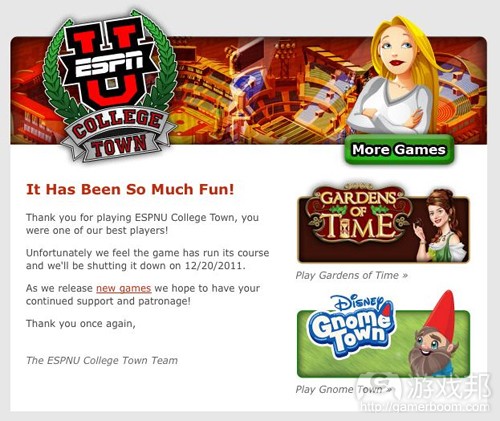
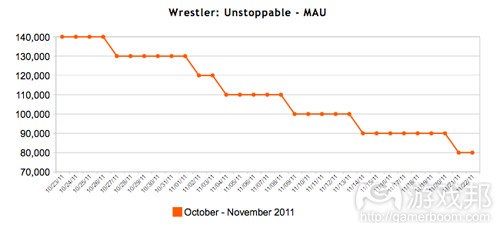
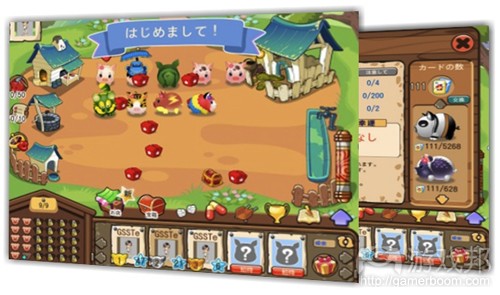
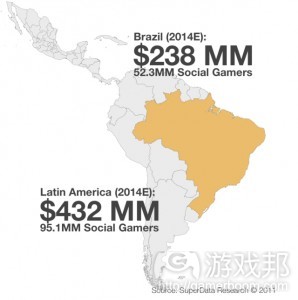
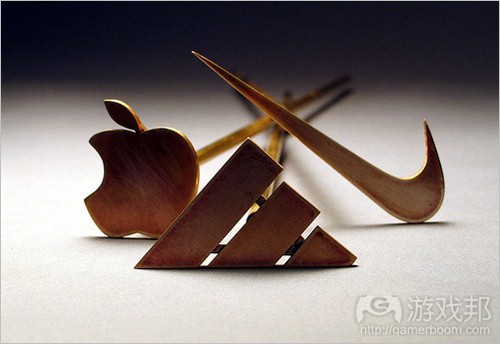














 闽公网安备35020302001549号
闽公网安备35020302001549号